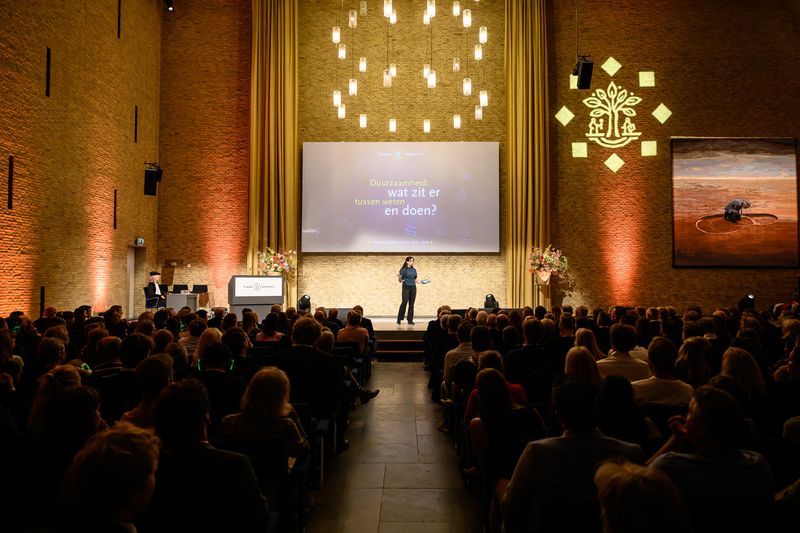Pro-Palestinian activists criticize Van Genugten’s evaluation: ‘Misleading and disappointing’
According to pro-Palestinian activists at Tilburg University, the evaluation of the security measures during the opening of the academic year is incomplete and biased. Both Palestine Solidarity Tilburg (PST) and associate professor Michiel Bot have raised serious questions about the independence and quality of the investigation.

In a written response to Univers, Palestine Solidarity Tilburg (PST) calls Van Genugten’s evaluation ‘misleading and disappointing.’ According to PST leader Rami Fransawi, the events of September 1st are not accurately portrayed. ‘There were indeed discrimination and injustices,’ he states.
Fransawi criticizes Willem van Genugten, Professor Emeritus of International Law, for the evaluation ‘justifying the discriminatory security measures by referring to the unrelated events that occurred earlier during Night University.’
Blame is shifted
Moreover, Fransawi says, ’the evaluation fails to address why the action during Night University took place in the first place – namely, Tilburg University’s inaction regarding its blood-stained ties with Israel, which its own advisory committee recommended breaking.’
PST also believes the evaluation shields the responsibility of the Crisis Management Team (CMT). ‘Security officers are portrayed as victims instead of enforcers. Blame for the discriminatory policy is shifted onto the students who experienced it firsthand,’ Fransawi says.
The pro-Palestinian activist group calls on the CMT ’to learn that so-called security measures that discriminate against your own students do not promote safety, but are, in fact, unjust and unlawful.’
Wearing kufiya
Michiel Bot, associate professor at Tilburg Law School, also voices strong criticism. According to him, the evaluation remains unclear whether Van Genugten considers it legitimate for students or staff to undergo additional security checks because they wear a kufiya. ‘Van Genugten makes no clear statement about whether such additional restrictions are appropriate or legitimate,’ says Bot.
Bot calls the evaluation ‘remarkable for a (emeritus) professor of law.’ He points to passages in which Van Genugten writes that the context of the events makes discrimination ‘explainable.’ ‘A judge doesn’t rule on whether actions are explainable, but whether they are justified,’ says Bot. ‘It’s strange that Van Genugten doesn’t evaluate that himself, while that is precisely the core question of his research.’
According to Bot, the evaluation is ‘sophisticated in tone’ and demonstrates bias. He also points to the position of Van Genugten, who, although retired, still has an office. And not in the Montesquieu Building of the law faculty, Bot notes, but in the Cobbenhagen Building, where the Executive Board also has its offices.
Can someone who still operates within the walls of Tilburg University truly operate independently? Bot: ‘The fox guarding the henhouse.’







